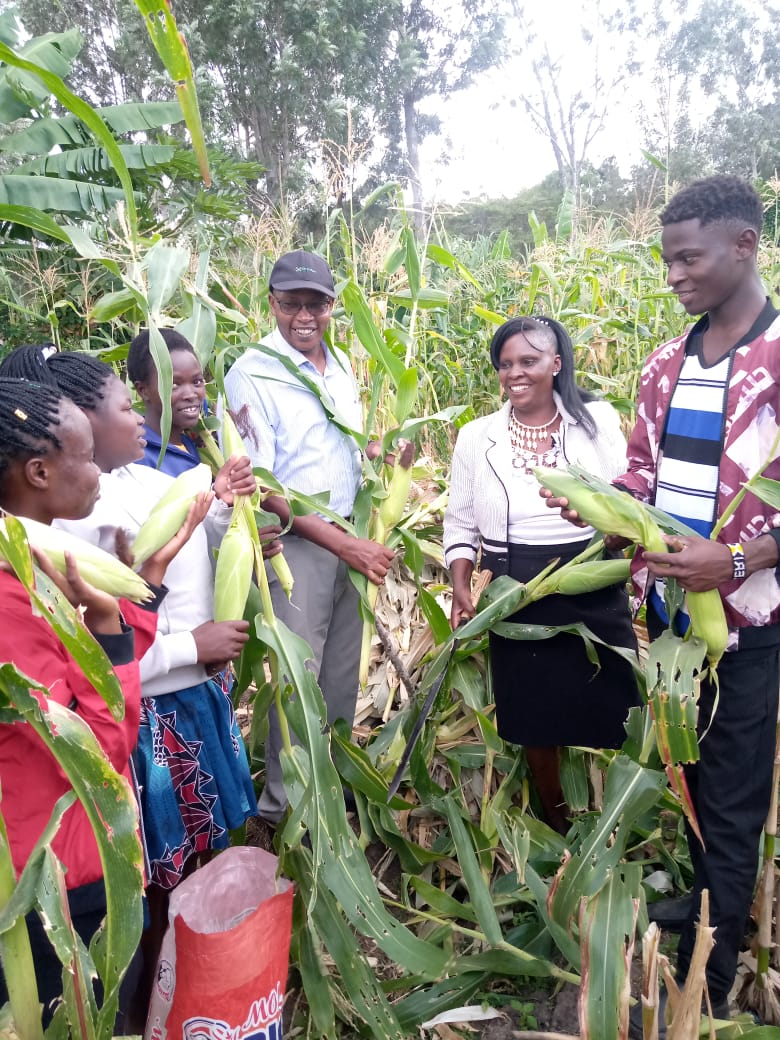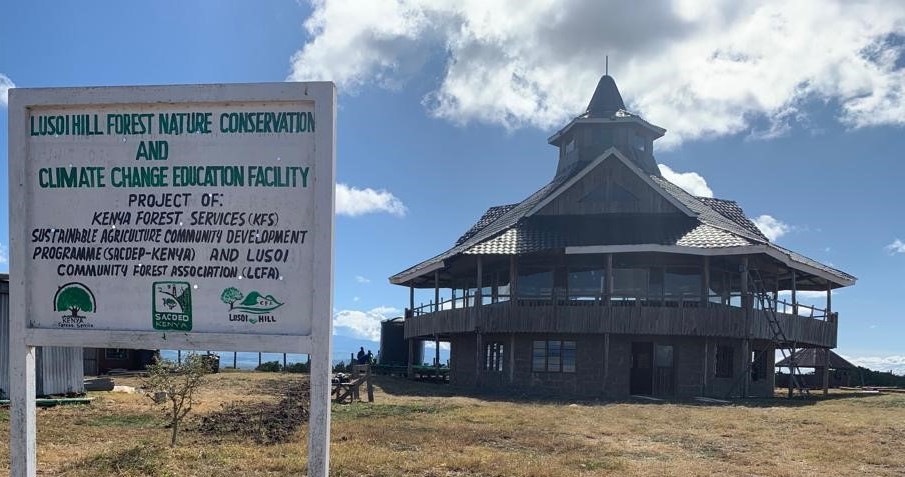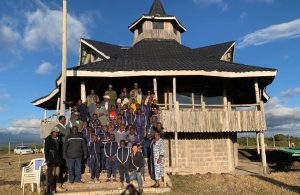Community Agriculture Programs (CAP)
SACDEP-Kenya is led by a team of 11 volunteers who form the Board of Trustees. Nine are from Kenya and two are from Tanzania. They bring a great wealth of experience from diverse backgrounds in sustainable agriculture and human development. The organization runs its programmes through several interlinked sectors with Community Agriculture Programme as the flagship.
The sector designs and implements sustainable ecological agriculture (S.E.A.) projects at community level. It strives to turn around the lives of 5,000 families every year in over 14 counties in Kenya and two districts in Tanzania. Its funding from small, medium and large funding institutions and individual persons.
MANDATE
Direct reach to small scale holder farmers for wealth creation through skills enhancement on Sustainable Ecological Agriculture (S.E.A.) principles, pillars and practices leading to food, nutrition, environment and income security for livelihood improvement
THEMATIC AREAS
- Agro-production using Sustainable Agriculture principles , practices and pillars
- Agro-marketing and market linkages
- Value addition and changing form
- Financial inclusion for small holder farmers and through self endowed saving and loans schemes popularly known as Banks Without Walls (BWWs)
- Natural Resources and management
- Water harvesting for household , livestock and irrigation
PROGRAMS AND THE SECTOR
MAASAI LAND VALUE ENHANCEMENT AND DROUGHT MITIGATION (MALVE)
The Maasai Land Value Enhancement (MALVE) Project is being implemented in 3 group ranches of Kajiado County. The goal of the project is to enable the Maasai people of Kajiado County to skillfully manage their natural resources of land, wildlife and water through implementation of drought mitigation measures, increasing productivity per square unit of land by 100%. This enhances land value, thereby reducing the temptation to sub-divide and sell land. Instead the community keeps the resource for current and future generations.
RANGERS
This project focuses on providing skills and equipment to game rangers in Kajiado County for improved sustainable wildlife management, biodiversity and ecotourism. This will translate to an increase in the number of tourists visiting the conservancies leading to increased income. The increased income will help the group ranches and the wildlife conservancies to maintain the game scouts sustainably and also share higher dividends to the members.
COVID RESILIENCE
The focus is on strengthening the resilience of the target communities along the Tanzania-Kenya border to cope and mitigate the effects of COVID-19 pandemic by creating public awareness campaigns, enterprise development in production of hygiene products and establishment of nutritional gardens. The project focuses more on empowering the women and the youth as they are more venerable to negative economic effects caused by COVID-19.
MANGOES FROM ABOVE 5 (MFA 5)
A project is being implemented in the four counties namely of Kirinyaga, Laikipia, Nyandarua and Taita taveta.
The main focus is value addition of organic farm produce where various value chains are attended to. These are:
- Kirinyaga – Coffee and Banana
- Nyandarua – Dairy Cheese making
- Laikipia – Honey and Camel milk
- Taita Taveta – Agro minerals
The project also focuses on establishment of Credit and Savings scheme and creation of market linkages and advocacy for policy influencing.
WATER LIVESTOCK AND MARKET GARDENING (WLG 7)
This is a project being implemented in 5 Counties of Embu, Kajiado, Laikipia, Murang’a and Kitui on climate change mitigation measures and resilience through implementation of climate smart farming technologies for livelihood improvement. These includes increasing food, nutrition and income security through application of SEA principles and practices. Activities include: – Water harvesting, renewable energy, establishment of orchards and woodlots, raring of small ruminant livestock, keeping of poultry, livestock improvement and seed bulking and banking.
SCHOOL AND YOUTH ENVIRONMENTAL CONSERVATION ACTION (SAY-ECA)
This is a training programme targeting youth in and out of school to empower them with knowledge on environmental conservation and management of natural resources. The project has established a youth training Centre at Lusoi Hill in Laikipia county where youth are brought together to learn about environmental conservation as they experience the beauty of nature from a well conserved Lusoi Hill.
KIMAKIA NATURAL CONSERVATION ENVIRONMENTAL EDUCATION FACILITY
This is a center that offers a real forest experience through trainings and forest exposure. The main agenda is making people appreciate the forest conservation and its benefits. The facility provides training to forest adjacent farmers on environmental conservation hence encouraging community participation in Aberdare Forest conservation. The Centre hosts a fish farm for trout fish used for training community on trout fish farming.
CLIMATE CHANGE MITIGATION INITIATIVE (CCMI)
This is a project training on Climate Change adoption practices for mitigation purposes through tree planting. The project has an established tree nursery with a wide range of indigenous and fruit tree species which is made available to community for planting to increase vegetation cover as a way of mitigating climate change effects.
COASTAL FRUITS NUTS AND LIVESTOCK(CFNL)
The project also called Youth Economic and Social Empowerment – YES ECO has its main Goal as to create employment opportunity and sustainable income for the youth in Kilifi County. Activities of the project have been felt and created impact in 5 sub-counties in Kilifi county of Coast region through tapping into the Tourism industry, fishing and marketing using agribusiness skills. It started its implementation in the year 2011 in Kilifi County covering 5 sub counties (Kilifi south, Kilifi north, Ganze, Malindi and Magarini sub counties)
LAMU ORGANIC COTTON
To strengthen the resilience of Resource limited small holder farmers and Youth through Skills enhancement in Sustainable Ecological Agriculture Practices, Credit and Market access for food, Nutrition and Income security in Lamu, Tana River and Kilifi Project Counties. This project promotes SEA in agriculture production for cotton, mangoes, pawpaw, simsim and other crops as a way of crop diversification for increased income.
ORGANIC BEVERAGE HERBS
The aim of this project is to strengthen the resilience of small holder farmers through growing, processing and marketing of Organic herbal beverages using appropriate Organic Agriculture practices and technologies for food, nutrition and income security in Murang’a, Laikipia and Loitoktok Project Areas. The project aims at diversifying agriculture for increased income among small holder farmers.
TREE GROWING FOR ECOSYSTEM AND LIVELIHOOD IMPROVEMENT (ECOSIA)
The aim of the project is to build a community that is able to improve biodiversity conservation, land degradation and climate change mitigation through establishment of indigenous trees plantation on 200 hectares of degraded forest land, fruit Orchards and woodlots on 4000 smallholder farms for increased household food, nutrition and income security.
LOCUST INVASION RESILIENCE
The overall goal of this project is to enhance the resilience of smallholder farmers to cope with the negative effects of desert locust invasion for enhanced food, nutrition and income security. The project is about implementing locust escaping technologies in crop production to enhance community quick recovery from locust invasion.
INTEGRATED WATERSHED MANAGEMENT (IWAMA)
This is a Diverse farming enterprise being implemented in Kiambu and Muranga counties. The project target small scale tea farmers around the Aberdare Forest Ecosystem focusing on Watershed and Ecosystem protection and Management, food and Income security, Advocacy aimed at strengthening the ecosystems protection, Marketing of Ecological Agriculture Products, Partnership building and Networks strengthening.
Agricultural Development Training Centres
SACDEP – Kenya operates cost effective training and conference centers (Ecological Centers) situated in Thika and Kilimambogo . The centers are used by partnering communities and institutions to offer services like accommodation, seminars, and meetings .These centers are also open to the public for organized groups like team building, excursions and graduation parties among others.
Our Thika facility is outstanding venue for all your training, conferences, accommodation and outside catering. It is located in a quiet, natural environment, complete with a steady first Wi-Fi, giving you a conducive atmosphere for learning or reflection. In addition you will enjoy playful velvet monkeys, fish ponds, natural springs, indigenous and exotic trees, beautiful hedges giving green flowery scenery throughout the year.
We are a ‘HOME OF ORGANIC PRODUCTS’. Most of our kitchen supplies are fresh organic products, sourced from our gardens and from our partner farmers whom we work with closely. All this is served in our spacious dining room.
Unbelievable, choices for affordable competitive packages are available for all kind of groups on Full board, half board and day conferences. Our Accommodation has a capacity of 65 beds. All rooms are self-contained fitted with comfortable beds, Hot and Cold showers, all round Mosquito nets, bed side drawers, DSTV services, and a wardrobe among others.
Our friendly committed team of well trained staff will give you value for money as they collaborate with security agencies to ensure your security during your visit. We are sure you will want to visit again as well as share the good things about us.
The Kilimambogo facility is located along Thika-Garissa highway; this facility has full-fledged kitchen, training hall, and a dining hall. There are also well manicured grounds available for hire to host social events including weddings, group parties, and graduation ceremonies among others, outside catering is also available.
Finance and Resources Sector
The Finance and Resources sector is one of the sectors in SACDEP Kenya. Its mandate is to ensure that funds (both internally generated and externally generated) and other resources are efficiently managed so as to improve the livelihoods of our resource limited communities as per the organization mission, vision and goal.
The sector has a staffing of 5 vibrant team members. The team is headed by the Finance and Resources Manager. The main units in this sector are as follows:
Finance and Accounting unit
This unit is responsible for book keeping, financial reporting and budget control.
Procurement Unit
The unit is charged with responsibility of procuring goods and services.
Stores Unit
The unit receives goods ordered and ensures that they are of the right quality and quantity. The unit also issues out goods to the end users.
The sector also:
- Manages organizational assets which include Land, buildings, motor vehicles, motorbikes among others.
- Mobilizes resources internally and externally so as to increase the organizational Asset base and funding.
- Provides financial expertise to Banks Without Walls (BWWs) groups of farmers to enhance their resource management skills.
BWW Sub Sector
This is a subsector that is responsible for the Management of BWW groups, savings and loan portfolios. BWW The subsector also offers training on financial literacy to BWW groups and other organized groups
Outreach, Network and Advocacy
The mandate of this sector is to contribute to the organizational vision through outreach and networking activities. This is done through:
- Reaching out to likeminded organizations, government institutes, research bodies for the purpose of building synergies in our development work.
- Maintaining the current Networks that SACDEP is a member of, for the purpose of building synergies in our development work.
- Increase the number of partnerships with like minded networks and organizations that advocate for sustainable agriculture.
- Tap on upcoming opportunities within the networks, national and devolved governments. Design projects/initiatives for the purpose of resource mobilization to reach out to more communities
In order to keep abreast with sustainable agriculture development globally, SACDEP collaborates actively with The Government of Kenya both at national and county levels. It is also a leading member of technical networks which include:
- Participatory Ecological Land Use Management (PELUM Association). Office in Juja, Kenya
- International Federation for Organic Agriculture Movements (IFOAM). Office – Bonn Germany
- Kenya Organic Agriculture Network (KOAN) Office at ICIPE – Kasarani, Kenya
- World Rural Forum (WRF). Office – San Sebastian, Spain
- Slow Foods Movement. Office – Mila, Italy
- Biosafety and Biodiversity Association (BIBA). Office in Thika, Kenya
- African Biodiversity Network (ABN). Office Thika – Kenya.

Students of CSAEA admire the green maize on Mama Margaret’s farm at Gatuanyaga area which is in the semi-arid part of Kiambu County. Organic farming assures better harvests in the face of climatic change.
To deliver its mandate on Mainstreaming Sustainable Ecological Agriculture through training and research, the sector has set up the College of Sustainable Agriculture for Eastern Africa (CSAEA) to achieve the following:
- Development of two levels of Curricula: 1. Craft Certificate Curriculum in SEA which is accredited and approved by the Kenya Institute of Curriculum Development (KICD) and in use for training; 2. Diploma curriculum in SEA which is in the process of accreditation and approval by the Kenya Institute of Curriculum Development (KICD) to be used for training.
- Development of Farmers’ demand driven short courses in crops, livestock, resource mobilization and group dynamics and leadership.
- Development of SEA related artisan courses which are accredited and approved by National Industrial Training Authority (NITA)
- The CSAEA College is registered as a member of the Kenya National Association of Private colleges (KENAPCO).
- The sector is involved in adaptive research work to address farmers challenges and appreciate innovations to improve productivity especially in crop pests and diseases management and Soil Health and fertility management.
- The sector has developed a Farmer Learning and Information Point (FLIP) with of SEA reference materials, training Aids and computers for on-line research.
The above developed is keyed towards addressing different areas under the Sustainable Development Goals, Vision 2030 and the African Agenda 2063.

Lusoi Forest Hill Training Facility constructed by SACDEP for use in training youth in and out of school on environmental conservation
ELC sector is mandated to reach out and create awareness among communities. In doing so it imparts skills and knowledge to youths in and out of school through training on issues of environmental conservation. This is expected to eventually empower them as active environmental conservators as they utilize natural resources sustainably for themselves and future generations.
The sector manages Lusoi and Kimakia centers.
LUSOI HILL FOREST CENTRE

Pupils of Baraka Primary School in Laikipia take a group photo after a session at the Lusoi Hill Forest Training Facility in June 2023
Lusoi Hill forest is located at the south eastern tip of Laikipia County. It was gazetted as a government forest land in 1984. The Land Mass of the forest hill is estimated by Kenya Forest Service at 259.5 hectares. Twenty-five (25) years ago, human settlement around the forest increased drastically. A rapid falling of trees ensured. This was accompanied by thousands of livestock grazing on the land without control. As farmers finished firewood collection from their farms, the forest was invaded and bushes brought down as an energy source. The forest area of the hill was left bare. This is the point at which SACDEP-Kenya was invited to lead the rehabilitation efforts. In collaboration with Kenya Forest Service and Community Forest Association, (CFA) SACDEP-Kenya started a project by setting up an environmental protection and nature conservation learning centre within the forest at the hill top. Pupils, students and youth who are out of school come in groups to learn about environmental conservation for development.
KIMAKIA ENVIRONMENT CENTRE
Kimakia forest block is located in the southmost end of the Aberdares in central Kenya. It’s approximately 60 kilometers west of Thika town. The special features within the forest are natural vegetation, shrubs, permanent river, waterfalls, and wildlife It is within this forest block where SACDEP-Kenya has set up a training facility for nature conservation and trout fish farming
It was designed with the aim of training primary school pupils, high school students, Colleges and university students, neighboring communities and any other visitors on matters of environmental conservation and trout fish farming.
Through carrying the above activities, the surrounding communities will benefit in terms of: –
- Increased rainfall as a result of ensuing forest cover, this will increase water levels on the rivers downstream
- The surrounding communities livelihood will improve as they will diverse their farming systems activities.
- Acquiring knowledge and understanding on the benefit of reducing forest cover damages.
